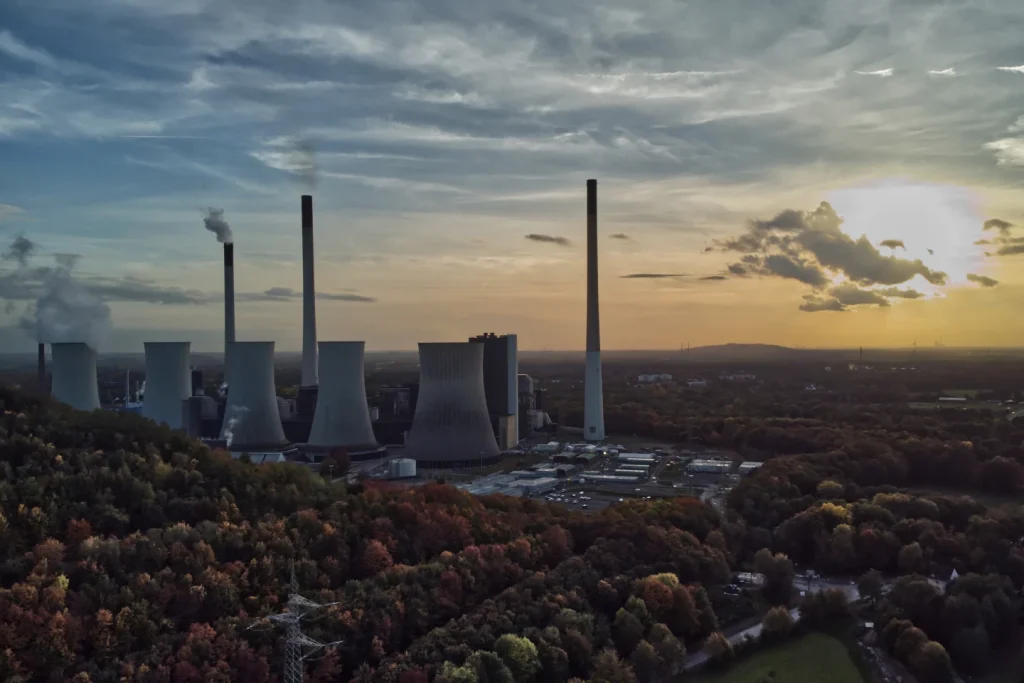The economic performance of Germany in the past year has been a matter of concern, as the country faced a contraction of 0.3% in its economy.
This decline in economic growth can be attributed to a variety of factors including increased energy costs, higher interest rates, a shortage of skilled labor, and domestic fiscal challenges.
These issues have collectively contributed to the stagnation of Europe’s largest economy, marking a stark contrast to its historical position as a strong and resilient economic force.
The International Monetary Fund’s projection of Germany being the worst-performing major developed economy in the previous year underscores the severity of the situation.
This stands in stark contrast to Germany’s previous status as a role model for economic expansion during times of global economic hardship.
The challenges faced by Germany have not only impacted its own economic landscape, but have also reverberated across the broader European and global economies.
The Federal Statistical Office’s preliminary estimate suggests that Germany’s economy likely contracted by 0.3% in the fourth quarter of the previous year, following a period of stagnation in the third quarter.
The official figures for the final three months of 2023 are anticipated to be announced on January 30th, providing a more comprehensive understanding of the economic situation in Germany.
The impact of Germany’s economic struggles extends beyond its borders, influencing trade, investment, and economic confidence across the European Union and beyond.
As a former economic powerhouse, Germany’s recent challenges have raised concerns about the broader stability and growth prospects of the European economy as a whole.
In response to these economic headwinds, it is imperative for German policymakers to formulate and implement effective strategies to address the underlying issues.
This may involve initiatives to mitigate energy costs, enhance workforce development, and address fiscal imbalances.
Moreover, international cooperation and coordination may be necessary to navigate these challenges, given the interconnected nature of the global economy.
The economic trajectory of Germany in the coming months will be closely watched by economists, policymakers, and market participants around the world.
The resilience and adaptability of Germany’s economy will be tested as it seeks to overcome the current obstacles and regain its position as a leading force in the global economic landscape.
In conclusion, the recent contraction of Germany’s economy by 0.3% in the past year reflects a confluence of challenges including higher energy costs, elevated interest rates, a shortage of skilled labor, and domestic fiscal pressures.
The repercussions of Germany’s economic struggles are not confined to its own borders, but have broader implications for the European and global economies.
As Germany navigates these challenges, it is essential for policymakers to pursue effective strategies and international cooperation to foster economic recovery and stability.
The outcome of Germany’s economic endeavors will undoubtedly have far-reaching implications for the global economic landscape in the foreseeable future.
The current economic situation in Germany has sparked a heated debate among experts and policymakers.
The country has experienced a series of setbacks that have led to a stall in its economic growth. One of the major contributing factors to this stagnation is the increase in natural gas prices for energy-intensive industries.
This spike in prices comes as a result of the loss of Russia’s cheap natural gas supply, following its invasion of Ukraine.
As a consequence, companies that rely heavily on natural gas for their operations are now facing higher production costs, which in turn affects their overall competitiveness in the global market.
Moreover, the recent surge in inflation has had a significant impact on consumer spending. With the cost of goods and services on the rise, consumers have become more cautious with their expenditures, leading to a decrease in overall economic activity.
This has created a challenging environment for businesses, particularly those in the retail and service sectors, as they struggle to attract customers and generate revenue.
In addition, there is a growing concern among companies about the shortage of highly skilled workers. Despite Germany’s renowned education system and strong vocational training programs, many companies are finding it difficult to fill key positions with qualified personnel.
This shortage of skilled labor has the potential to hinder productivity and innovation, which are crucial for maintaining Germany’s competitive edge in the global economy.
Furthermore, Germany’s large factory sector has been impacted by a global slowdown in manufacturing. The country, known for its high-quality manufacturing and engineering, has felt the effects of reduced demand for its products in international markets.
This has led to a decrease in production and export levels, further adding to the economic challenges faced by the nation.

To compound these issues, the European Central Bank has implemented higher interest rates in an attempt to curb inflation.
While this move may help stabilize prices, it has also had adverse effects on the construction industry. The increased cost of borrowing has hindered the development of new residential and commercial properties, which is crucial for meeting the growing demand for housing and office space in the country.
In conclusion, Germany’s economic stall can be attributed to a combination of factors, including higher natural gas prices, inflation, skilled labor shortages, a global manufacturing slowdown, and tighter monetary policies.
Addressing these challenges will require a comprehensive approach that involves both government intervention and private sector initiatives.
It is imperative for policymakers to develop strategies that support businesses, encourage innovation, and foster the development of a skilled workforce.
By addressing these issues, Germany can work towards revitalizing its economy and maintaining its position as a leading global player.
In the wake of the COVID-19 pandemic, governments worldwide have grappled with unprecedented challenges, from public health crises to economic downturns.
Among the myriad issues faced by governments, the German government’s struggle with a budget crisis following a ruling by the constitutional court has garnered significant attention and sparked debate on the allocation of resources and long-term infrastructure investment.
The ruling by Germany’s constitutional court, which disallowed the repurposing of tens of billions of euros originally earmarked to mitigate the effects of the COVID-19 pandemic for measures aimed at combating climate change and modernizing the country, has had far-reaching implications.
This decision not only necessitated a reworking of the 2023 and 2024 budgets but also brought to the forefront the complex interplay between short-term crisis response and long-term sustainability efforts.
One of the key issues highlighted by this ruling is the tension between addressing immediate crises and investing in long-term infrastructure and sustainability.
The prioritization of short-term crisis response over long-term investment has been a recurring theme in governance, not only in Germany but also in many other countries.
The government’s focus on balancing the budget in accordance with a 2009 constitutional amendment limiting deficit spending has led to a perceived lack of investment in critical infrastructure such as rail networks and high-speed internet.
The implications of this lack of investment in infrastructure are multifaceted. Not only does it impede the country’s ability to adapt to the changing needs of a modern society, but it also hampers efforts to achieve sustainability and combat climate change.
The modernization of infrastructure, particularly in the realm of transportation and communication, is essential for fostering economic growth, enhancing connectivity, and reducing carbon emissions.
By neglecting these crucial investments, the government risks falling behind in the global race for technological advancement and sustainable development.
Furthermore, the court ruling and the subsequent budget crisis have underscored the need for a comprehensive and forward-looking approach to governance.
The interconnected nature of crises, whether they be public health emergencies or environmental challenges, necessitates a holistic and adaptive governance framework.
While it is crucial to address immediate needs, it is equally important to plan for the long-term resilience and sustainability of the nation.
In light of these developments, the German government faces the formidable task of striking a balance between responding to immediate crises and laying the groundwork for a sustainable and resilient future.
This entails not only revisiting budgetary allocations and fiscal policies but also rethinking the underlying principles that guide governance and public investment.
It requires a nuanced understanding of the trade-offs between short-term exigencies and long-term imperatives, as well as a commitment to fostering innovation and progress.
Ultimately, the budget crisis and the debate surrounding infrastructure investment in Germany are emblematic of the broader challenges faced by governments worldwide.
As the world grapples with complex and interrelated crises, from the COVID-19 pandemic to climate change, the need for astute and forward-thinking governance has never been more pressing.
The decisions made in response to these challenges will shape the trajectory of nations and the well-being of future generations.

It is imperative that governments adopt a strategic and holistic approach that balances immediate needs with long-term sustainability, thereby ensuring the prosperity and resilience of their societies.
In conclusion, the budget crisis faced by the German government following the constitutional court ruling and the discourse on infrastructure investment underscore the intricate interplay between short-term crisis response and long-term sustainability efforts.
These developments call for a reevaluation of governance principles and fiscal policies to strike a balance between immediate needs and future imperatives.
By addressing these challenges with foresight and resolve, governments can pave the way for a more resilient, sustainable, and prosperous future for their nations.
